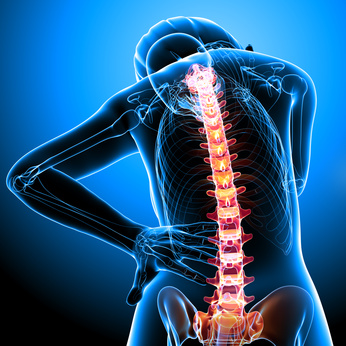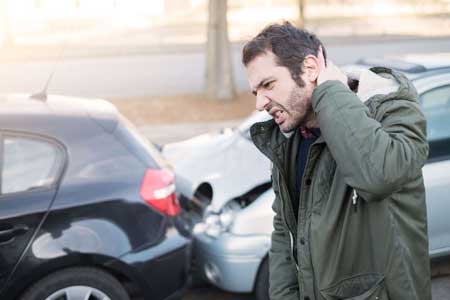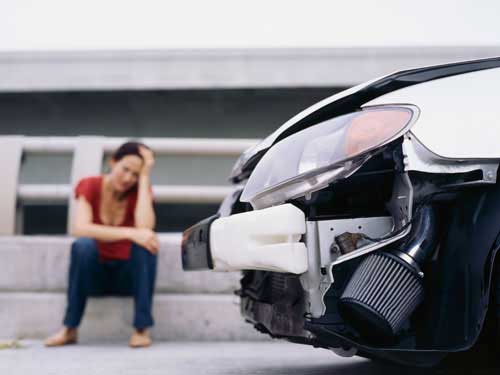There are many reasons to see a Doctor after an automobile accident. You can always fix or replace your car, but you cannot replace your health and vitality. Not only will seeking medical attention prevent additional injuries, but it will also help satisfy the insurance company and support your personal injury claim. This is why we have put together a “Best Practices” for anyone involved in a car, bus, tractor trailer, or motorcycle accident.
Best Practice #1 – Car Accident Injuries
Soft Tissue Injuries
Most people do not realize that automobile accidents can cause a wide variety of injuries. Moreover, many collision injuries are considered soft tissue damage, which doesn’t sound to serious but can lead to long-term pain without proper treatment. Don’t delay medical care if you are feeling muscle pain, numbness, lack of motion or weakness as these could be signs of deeper muscle damage. Always remember that whiplash and many soft tissue injuries can happen at very low speeds and can take days or even weeks to feel.
Severe Accident Injuries
More complicated automobile injuries include broken bones, fractures, dislocations, contusions and many more. Additionally, many of these injuries will require an X-Ray, CT Scan or MRI to successfully diagnose. We suggest asking the Doctor if they offer complete diagnostic imaging before accepting treatment. Otherwise, you may need to start over with a new Clinic to complete your treatment.
Specialized Collision Treatment
The final category includes injuries that will require treatment from a specialized Doctor such as a Neurologist, Orthopedic Surgeon, ENT Doctor, Pain Management and more. Just remember, when scheduling with a specialist, you may need a referral from an Injury Clinic. Most specialists will require you to see an Accident Doctor to confirm the need for additional treatment. Also, many specialty Doctors will provide treatment at your primary Injury Clinic.
Best Practice #2 – Steps to take after any Automobile Accident
We find that many people are not prepared or were never taught what to do after a serious car wreck. Following a few simple steps can make the difference between a successful personal injury claim, and can help accelerate overall recovery. For starters, time is not your friend after any collision and the insurance company wants to see if you seek medical care. Moreover, the insurance company will track all of your injuries and any treatment received.
The best thing you can do to help satisfy the insurance company after any serious car wreck is to document everything. Documentation will help keep all of the parties honest after the accident, and will support your personal injury claim. For this reason, we recommend taking pictures at the scene of the accident. Use your phone camera to take pictures of the cars involved, street location, license plates and/or people involved, noticeable injuries and anything that seems out of place.
Next, get a copy of the accident report from the officer on site. We also suggest taking a picture of the report in case it gets lost, and check the report for accuracy. Notify the on-site police officer as soon as possible if you notice any errors on the accident report. Call the police station if you find any errors or changes after the accident. Many people are in a state of shock after any collision, which can lead to inaccurate information.
Best Practice #3 – Seeking Medical Care
Always remember that the insurance company will look for any way to limit or deny your personal injury claim after any collision. Moreover, your personal injury claim will be largely based on the amount of treatment you require, and your pain and suffering. As we mentioned, you cannot have too much documentation after any car wreck, which is why you should document your injuries as soon as possible. Not only will this help satisfy the insurance company, but it will also prevent additional pain and suffering.
In like manner, delays and gaps in medical care can be used against you by the insurance company after your collision. Delays in treatment are oftentimes viewed as a sign that you are not truly injured, and therefore do not require extensive medical care. Similarly, gaps in medical care signal that you do not care to follow up with treatment. In other words, you most likely will not require a large injury claim due to pain and suffering. Don’t give the insurance company any reason to question or limit your personal injury claim.
Best practice #4 – Finding the right Doctor
Generally speaking, most family Doctors will not treat car wreck injuries, primarily due to the billing required. Your family PCP will commonly accept healthcare insurance and/or cash for payment. Whereas an accident Physician will accept all forms of third party billing, which is required after any automobile accident. However, we do recommend informing your family PCP after any auto, motorcycle or semi-truck accident.
A good Injury Clinic will provide access to a team of Medical Doctors, Physical Therapists and Chiropractors. Integrated medicine allows a team of Doctors to work together under one comprehensive treatment plan. In short, you can get the medical care you deserve from a team of Doctors after any automobile collision. Just make sure that your Doctor accepts all forms of third party billing and is willing to represent your injuries in court.
The final question to ask any Injury Clinic before accepting treatment is whether they can refer out to specialist Doctors if needed. Many car wreck injuries will require special treatment from an ENT, Neurologist or Orthopedic Doctor. However, many Clinics do not have relationships with specialist Doctors. In this case, you may need to find a new Doctor who can refer out to specialist Doctors costing you time and money.
Best Practice #5 – Common Automobile Accident Injuries

Car wreck injuries can be complicated, and generally require special medical attention as every accident is different. Not to mention that many soft tissue injuries will actually get worse over time. For this reason, we recommend seeking treatment within 72 hours to prevent additional pain and misery, but also to help satisfy the insurance company. However, many states will allow up to 14 days to see a Doctor to qualify for PIP coverage. A list of common automobile accident injuries includes:
- Spinal and Back Injuries
- Whiplash and Neck Injuries
- Shoulder and Arm Injuries
- Pinched Nerves, Soft Tissue Damage
- Scrapes, Bruises, Cuts, Burns, Strains
- Facial and Head Injuries
- Broken Bones, Dislocations and Fractures
- Headaches, PTSD, Emotional Trauma
- And many, many more.
Best Practice #6 – Automobile Accident Attorney
Most PIP states do not require you to use an attorney after a car collision. However, this largely depends on the severity of your accident. For example, Florida PIP laws provide up to $10,000 in medical care regardless of who was at fault, and you do not need an attorney to qualify. Whereas, Arizona generally requires the use of an attorney after any automobile accident. In the end, every state is different and it is up to you to get the medical care you deserve.
Of course, this is why we recommend talking to your Doctor about the pros and cons of using an attorney after any accident. Your Doctor understands the extent of your injuries and the necessary treatment required. Moreover, your Doctor knows which attorneys are best and specialize in your specific injuries. You may not need an attorney, but a good attorney/doctor relationship will always help your case.
Best Practice #7 – Communication
With this in mind, the last bit of advice we can give is to keep open lines of communication with both your Doctor and Attorney. For example, you should always notify the Doctor if you need to cancel or postpone an appointment. Likewise, let your attorney know about changes to your treatment plan, and it is always a good idea to keep a treatment journal. Again, you cannot have too much information after your automobile collision.
Lastly, make sure to notify the insurance company if you make substantial changes to your treatment plan. For instance, make note of new Doctors or Clinics visited, changes in medical conditions and/or complications from previous injuries. Feel free to bring your medical journal to all Doctor appointments and when visiting your attorney. This documentation will be helpful if your personal injury claim ends up in court.
Best Practices Summary
These are our Best Practice recommendations if you or someone you love were involved in an automobile accident. Always remember that time is very important after any car wreck. Many patients will focus on the loss of their vehicle or time off work after their accident. In reality, you can always fix your car or find a new job, whereas your health cannot be easily replaced. Get the medical care you deserve from a team of Doctors who specialize in complicated accident injuries.




Leave a Reply